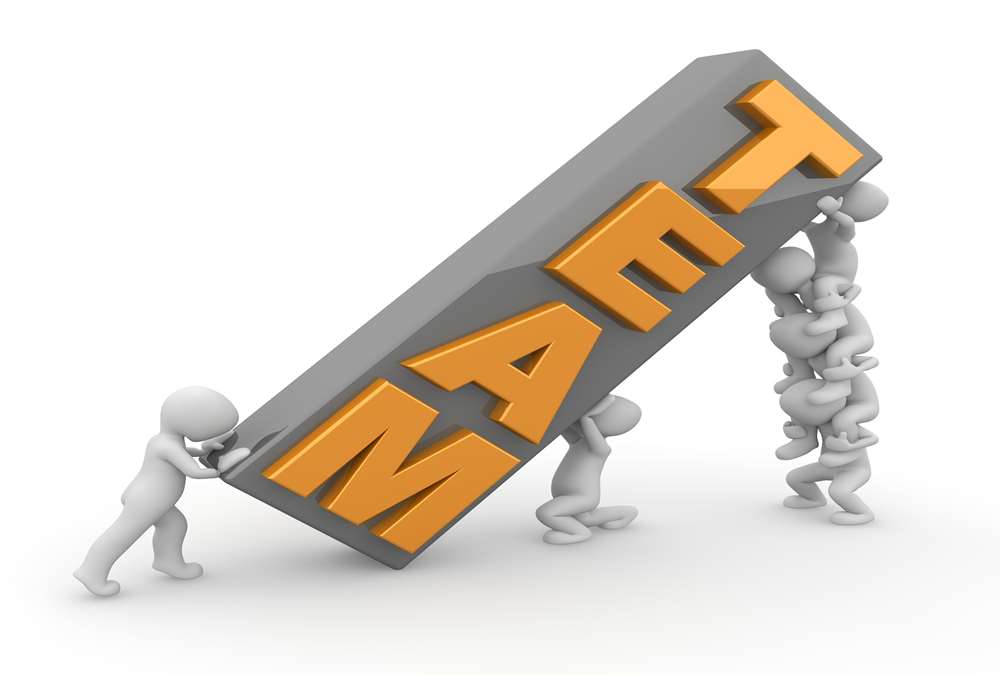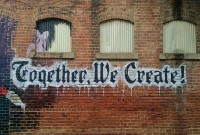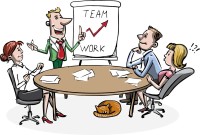- Home
- Business Processes
- Industry Knowledge
- Aerospace Industry
- Automotive Industry
- Banking Domain
- BFSI Industry
- Consumer/ FMCG Industry
- Chemicals Industry
- Engineering & Construction
- Energy Industry
- Education Domain
- Finance Domain
- Hospitality Domain
- Healthcare Industry
- Insurance Domain
- Retail Industry
- Travel and Tourism Domain
- Telecom Industry
- Leadership Skills
- eLearning
- Home
- Leadership Skills
- Leadership & Management
- Team Foundation in Forming Stage
Team Foundation in Forming Stage
This is the first stage of team development. This is the stage when the foundation of the team is laid. During the Forming stage, team members have a high dependence on their leader for guidance. Learn the practical strategies you can use during this stage to help your team develop into a highly effective performing team.
Good team development begins on day one and forming is the “Getting to Know You” stage. You can compare this stage with your first day at school as a child, or perhaps with your first day on a new job. Some obvious behaviors are; everyone is polite, overly cautious, and generally doesn't know what to expect. This is the first stage of group development – Forming where the team members are trying to get to know one another and getting comfortable with one another.
Establishing Roles and Responsibilities
In the Forming stage, the team comes together and members try to know each other and establish a common understanding and formulate roles and responsibilities. Team members may be excited and enthusiastic, but they may also be anxious. In this stage, the members try to explore and understand the behavior of the team members. They make their efforts in understanding the expectations of the peer team members, are polite, and exploring how to gain acceptability and fitment into the team. Because everything is new there is a fair amount of confusion and anxiety as members are naturally trying to understand their own roles, the roles of the other team members, and their purpose in the group. This is entirely natural and to be expected. People are unsure, suspicious, and nervous. Productivity might be low as people try to put their best foot forward.
Exploration by Members
It takes time for any new team to become a cohesive unit, “Forming” starts with lots of exploration as group members get to know one another. Think of this stage as an exploration period in which individual roles and responsibilities are being sorted out. In this stage, team members are generally enthusiastic and motivated by a desire to be accepted. They're typically very polite to each other and trying to figure out similarities and differences with others. First impressions play a key role as people try to figure out the similarities and differences. Issues that may arise are questions of whether each person feels like they belong to the group, whether other members can be trusted, and who is in charge.
Orientation is the most important task in the forming stage and members are looking towards the leader to provide the required direction. During the Forming stage, team members have a high dependence on their leader for guidance and the leader's task is directing, so that the group can get coordinated in their efforts.
Setting Operational Structures
This is also a good time to look at how the group is organized because the group has not yet molded into a strong, effective unit, therefore it's still relatively easy to reorganize the group if required. It's also helpful to set group ground rules, which are expectations about how work will be done, decisions will be made, and how people will treat each other. In short, the leader has a wonderful opportunity to be sure that the right people are in the right place using the right process. “Forming” stage is usually short, and sometimes may only last for a single meeting where the team members get introduced.
Forming an effective and cohesive team is fundamental to the overall success of the team and pulling the right team together from the start has benefited far beyond just completing tasks on time. Now we will focus on different strategies for dealing with issues that may arise during the first stage, “Forming”. You'll learn strategies for selecting high-performing team members most suited for your project or team, as well as recommendations for performing proper introductions, clarifying team purpose and context, and making sure team members understand their responsibilities. As a leader, you can use several strategies during this stage to build an effective team.
Tips for Forming Stage - Leaders:
Suggestions for the Team Leader/Member in this stage:
- Search out the people in your organization with the necessary skills and the time to be part of your team
- Provide team structure
- Ensure that members feel comfortable and knowledgeable about the group
- Give clear information on the project and goal or ask for clarity
- Clarify roles and responsibilities
- Clarify the team's goals and outline the planned schedule
- Clarify the individual role and how they will be contributing to the overall accomplishment
- Build enthusiasm by talking about why the group will be successful
- Promote an open and supportive environment
- Encourage relationship building
- Practice constructive team behaviors
- Educate about phases of team development – this will make it easier to move out of more difficult phases.
Characteristics of the Forming Stage:
- Exploration - Trying to know each other
- Focused - Trying to understand similarities and differences
- Confusion/Anxiety - Trying to gain acceptability
- Lower productivity – Everyone trying to put their best foot forward
- Leadership – Generally directive to set the tone
- Risk: Avoidance of conflict
- Learning: Gaining understanding about opportunities and challenges
- Excitement: Motivation and excitement about the project.
Related Links
You May Also Like
-
Evidence of the medically damaging symptoms of work stress necessitates applying the treatment of stress management. Stress management is increasingly drawing the attention to the management experts not only as a remedial measure but also as a way to resource management. If the workplace can be made a little more lovable the increase in the achievement of the organization may be much time more. If group stress can be removed by introducing group discussions and recreational facilities a long-lasting team spirit may get developed.
-
Reasons behind Wastage of Time
Under-utilization of time may be due to the faulty system or faults of manager/officer/leader or due to lack of planning. There could be many factors driving the procrastination behavior like system issues, personal work habits, and lack of delegation, personality traits, and bad working habits of the leader, failure to tackle interpersonal conflicts, obstacles, and lack of far-sightedness.
-
Teams are certainly very relevant and important elements in today’s high-performance organization but the important thing to remember as a leader is that we can’t simply rely on putting highly effective individuals together to make a highly effective team. Empowerment increases the effectiveness of the team and drives many intangible benefits both for the organization and the employees.
-
Recognizing Stress & its Sources
As an individual, you almost certainly know what stress feels like. Stressors are events or situations to which people must adjust. Stressors may be physical or psychological in nature. The level of severity of stress is determined not merely by exposure but the intensity, duration, and frequency of stressors. The sources of stress are many. They arise from multiple areas both with the individual and from the environment.
-
A manager or an employee in an organization who is experiencing a high level of stress may develop high blood pressure, ulcers, irritability, difficulty in making routine decisions, loss of appetite, accident proneness, and the like. These can be subsumed under three general categories, physiological, psychological, and behavioral symptoms. Stress can give rise to a number of changes.
-
Storming Stage of Team Development
Storming is the second stage of team development and this stage is characterized by a bid for power and inter-personal conflicts. Learn the key factors that occur in the storming stage and the strategies that a team leader can adopt to pass this stage of high winds
-
Laissez-faire is a style of leadership that affords the group members a great deal of independence. Tasks are delegated to the group members and they are responsible to see the project through to fruition. Research has shown that this style of leadership leads to the lowest levels of productivity. This article explains this style and covers the implications of having a hands-off approach and the situations where this style could be effective.
-
Building Perfect Creative Team
One misconception around creativity is that creative act is essentially solitary. Most of the world's important inventions resulted not from the work of one lone genius, but from collaboration of a team with complementary skills. Managers should build teams with the ideal mix of traits to form a creative group and then establish the conditions that make creativity much more likely to occur.
-
Charisma is a certain quality of an individual personality, by virtue of which he is set apart from ordinary men. Charismatic Leader gathers followers, through dint of personality and charm. Understand the meaning and concept of Charismatic Leadership and the qualities of a charismatic leader. Gain an understanding of the advantages and disadvantages of using charismatic leadership. Finally, explore the difference between charismatic and transformational leadership.
-
Concept & Definition of Stress
Stress is a popular expression used by people in day to day life. Pressures of day to day living sometimes necessitate coping or dealing with them and stretch the body beyond its natural capacity. They are called stressors. Stress is a natural, ongoing dynamic, and interactive process that takes place as people adjust to their environment.
Explore Our Free Training Articles or
Sign Up to Start With Our eLearning Courses

About Us
Learning
© 2023 TechnoFunc, All Rights Reserved










